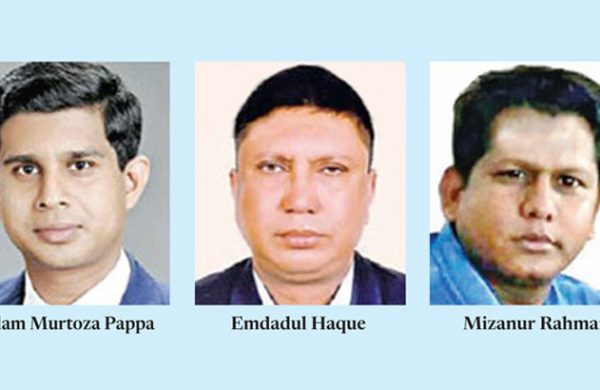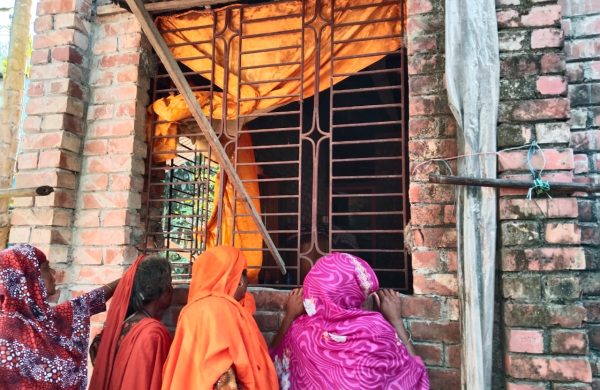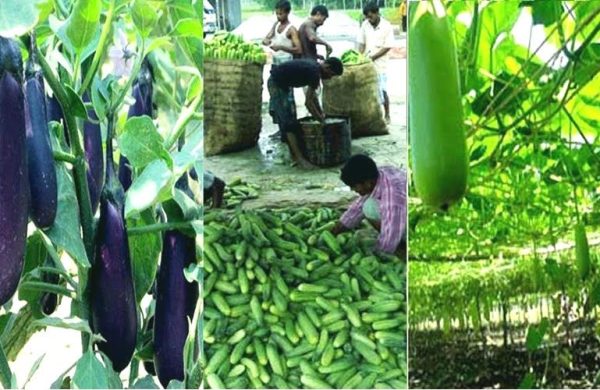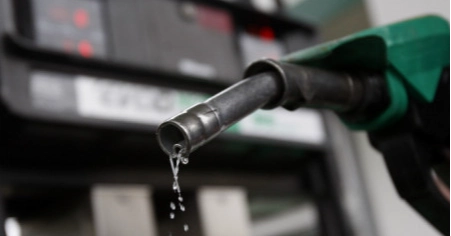Rupganj a bustling hub of illicit drug trade
- Update Time : Sunday, September 8, 2024

TDS Desk:
Narayanganj’s Rupganj, an upazila adjacent to the capital Dhaka, has turned into a hub for illicit drug trade, thanks to a lack of adequate surveillance by the police and the Department of Narcotics Control. Driven by the desire to get rich quickly, many have become involved in the drug trade there.
Local sources said that the drug trade in Rupganj is primarily controlled by former textiles and jute minister Golam Dastagir Gazi’s son Golam Murtoza Pappa Gazi, Emdadul Haque Dadul, and Mizanur Rahman Mizan. Under their protection, drug dealers in Rupganj have been operating freely. It has been reported that money from 400 drug spots in Rupganj was funnelled to these three individuals. They reportedly received millions of takas every month. Shamsher Ali was in charge of controlling the drug trade in the Chanpara Rehabilitation area, from which Emdad reportedly received Tk20 lakh per month.
Additionally, several leaders and activists of the Awami League have been directly and indirectly involved in the drug trade. As a result, at least 38 individuals have become millionaires in Rupganj through drug trafficking.
In the past decade, 14 people have been killed in disputes over drug trade in Rupganj. In the past year alone, 38 cases have been filed under the Narcotics Control Act, leading to the arrest of 64 individuals.
Investigations reveal that the large number of floating labourers in Rupganj’s industrial area has made them easy targets for drug dealers, who operate around the factories. The booming land business in Rupganj has also been infiltrated by drug dealers seeking to launder money from their illegal activities. It can be said that much of Rupganj’s local politics and economy now revolve around the drug trade. There are allegations that some local politicians, corrupt police officers, and officials from the Narcotics Control Department are complicit in the drug trade, amassing vast wealth as a result. Although occasional raids are conducted for show, it is alleged that these individuals are actually working together.
The Kanchan Municipality, Tarab Municipality, Kayetpara, Deilpara, Nagorpora, Ichapura, Bagbari, Daudpur, Golakandail, Murapara, and Bhulta Union areas in Rupganj have become hubs of drug activity, with Chanpara slum being a major drug market. In the evenings, Phensedyl and yaba are readily available. Areas such as Gobindapur in the Daudpur Union have also seen the rise of illicit liquor production.
Research indicates that there are around 70,000 drug users in Rupganj, with an estimated annual expenditure of Tk122 crore. There are approximately 500 drug dealers and around 1,200 retail drug dealers. The lives of thousands of young people have been nearly destroyed by these drugs. While minor dealers are often caught, the major players remain untouchable.
Several police and intelligence officials have reported that drugs are brought into Rupganj through roads and waterways. The most secure route for drug trafficking is the Balu River, where there is no police patrol, allowing drug dealers to transport drugs using motorised boats. The River Shitalakshya is another route used to smuggle drugs into Rupganj via cargo ships. Drugs also enter Rupganj from Cumilla via the Asian Highway. Additionally, drugs are smuggled from Ashuganj-Brahmanbaria via the Dhaka-Sylhet Highway. The Bhulta area on the Dhaka-Sylhet Highway serves as a transit point for drugs, with Phensedyl, yaba, and heroin being brought into the area from Akhaura, Sylhet, and Brahmanbaria using buses, night coaches, motorcycles carrying newspapers, or trucks.
Smuggling tactics: According to sources, traffickers use various tactics to transport drugs. Yaba and Phensedyl are hidden inside gourds, coconuts, and matchboxes, while heroin is concealed in sweet boxes. Marijuana is carried in jute bags. Children and young people are often used to transport drugs, with women being the primary couriers. Drugs are hidden in sensitive parts of their bodies for transport. Sources indicate that over 700 children and teenagers serve as drug couriers in Rupganj.
14 murders linked to drugs: According to police and local sources, 14 people have been murdered over the past 10 years in Rupganj for opposing drug use or protesting against it.
20 female drug lords: There are 20 female drug lords operating in various areas of Rupganj, known by names such as “Drug Queen,” “Fancy Queen,” “Drug Empress,” and “Kalanagini.” Some are also known as “Danger Lady.” These women are not only spreading drugs in the area but are also accused of engaging in and promoting antisocial activities.
Administration’s Response: Zobayer Hossain, the officer-in-charge (investigation) of Rupganj Police Station, said, “Operations against drugs will continue. Some areas in Rupganj are difficult to reach, giving drug dealers a chance to escape.” When questioned about the allegations of drug trafficking, he dismissed them as false, adding, “Sometimes, by mistake, drug users are arrested. When there is lobbying, they are released.”















